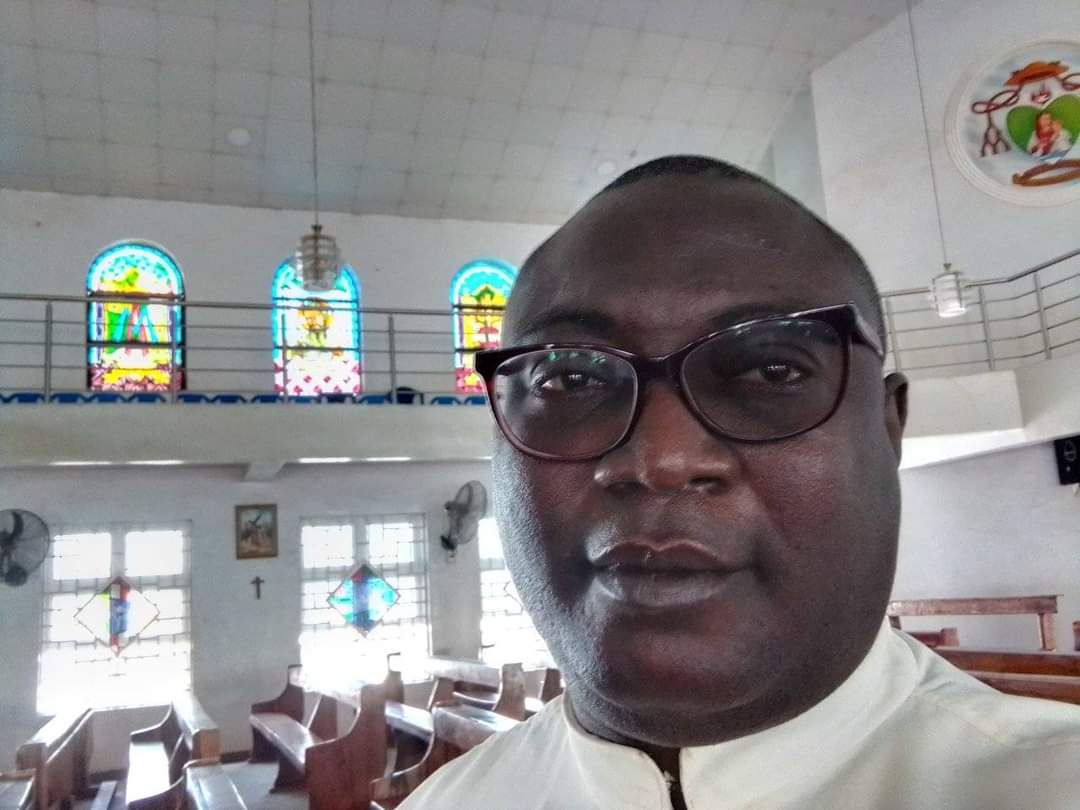The Father’s House

Fifth Sunday of Easter, Year A (07/05/2023)
(Acts 6:1-7; Psalm 33:1-2, 4-5, 18-19; Psalm 33:1-2,4-5,18-19; 1 Peter 2:4-9; John 14:1-12)
Fr. Samuel Odeh
“In my Father’s house are many rooms; if it were not so, would I have told you that I go to prepare a place for you?” (John 14:2). In our first reading from the Acts of the Apostles we see how the early Christian community dealt with a very human problem namely, discrimination. It is so natural for us to prefer and favor our own before those of others. The widows of the “Hellenists,” the Jewish Christians who spoke Greek and were Greek in culture and outlook, were being neglected in the daily distribution, while the widows of the “Hebrews,” those Christians whose background and way of life was entirely Jewish, were being favored. The Corporal Works of Mercy have always been an integral part of the ministry of the Church even from the very beginning, but the Apostles considered prayer and the ministry of the word equally important. They solved the problem by choosing seven men from among the neglected party who would be dedicated to serving their temporal needs. Thus arose the ministry and the holy order of deacons. The lesson here is that the Church of Christ must welcome all and exclude none; God is the Father of all humankind. The Church must be concerned with both the spiritual and temporal needs of all. Another important lesson we can also borrow from the apostles in this regard is that they chose to be a part of the solution rather than be a part of the problem.
In our second reading from the first letter of Peter, the apostle is stressing the need for unity in the Church of the risen Jesus Christ in both belief and the practice of that faith. He says, “..and like living stones be yourselves built into a spiritual house, to be a holy priesthood, to offer spiritual sacrifices acceptable to God through Jesus Christ” (1 Peter 2:5). The Church is not an exclusive club and discrimination, whether on the basis of ethnicity or nationality, gender, social and economic status, and academic qualifications represents a disconnect between what we believe and our practice of it. Discrimination represents a stumbling block the apostle Peter describes in today’s second reading as a consequence of disobedience to the word of God (1 Peter 2:8). The Christian community is instead “.. a chosen race, a royal priesthood, a holy nation, God’s own people, that you may declare the wonderful deeds of him who called you out of darkness into his marvelous light” (1 Peter 2:9).
Our gospel reading today is from a time, in the evangelist John’s account, long before the Passion of Jesus. He tells his disciples he will be going back to his Father to prepare a place for them where they can also follow because in the Father’s house are “many rooms.” We are now in that part of the season of Easter when Pentecost Sunday is approaching and are being prepared for the transition from the time of the physical presence of Jesus to a time after his departure in the flesh when he continues to be present in his Church through the Holy Spirit. Jesus said this to his disciples, encouraging them to faith after his departure: “Let not your hearts be troubled; believe in God, believe also in me” (John 14:1). The disciples’ initial response to this invitation to faith parallels our own experience today. Many people are at a loss as to how they are to live their lives in a way that brings them true happiness and peace as well as a proper understanding of the person and affections of God the Father. In other words, many are yet to hear the gospel preached to them. Thomas asked Jesus about knowing the way to the Father’s house, to the place where the Father lives, while Phillip asked about knowing the person of God the Father himself. To the first question Jesus answered, "I am the way, and the truth, and the life; no one comes to the Father, but by me” (John 14:6). To the second question Jesus said “... He who has seen me has seen the Father…” (John 14:9). Walking in the footsteps of Jesus and the victory of his message of unselfish living and sacrificing love are God’s gift to us. Anyone who encounters or meets with the person of the risen Jesus will also agree that he is the same person they met in the pages of the Gospels admonishing and forgiving sinners, caring for the sick, comforting the sorrowing, spending time in prayer, feeding the hungry, preaching God’s word, raising the dead, tolerating and sharing with women and foreigners, the same Jesus who suffered and was crucified. Jesus himself is the face of God. The “many rooms” that Jesus mentioned in today’s gospel reading certainly point to the magnanimity and largesse of God the Father in his ability to accommodate all of his creatures, but they could also represent the many services and ministries we as Christian disciples can engage in or the many rewards and blessings that await those who are faithful to Christ. Let us pray for a deep love of Jesus and a stronger vision of the Father’s many-roomed mansion as well as a stronger desire for an assured place in it.
“Truly, truly, I say to you, he who believes in me will also do the works that I do; and greater works than these will he do, because I go to the Father” (John 14:12).